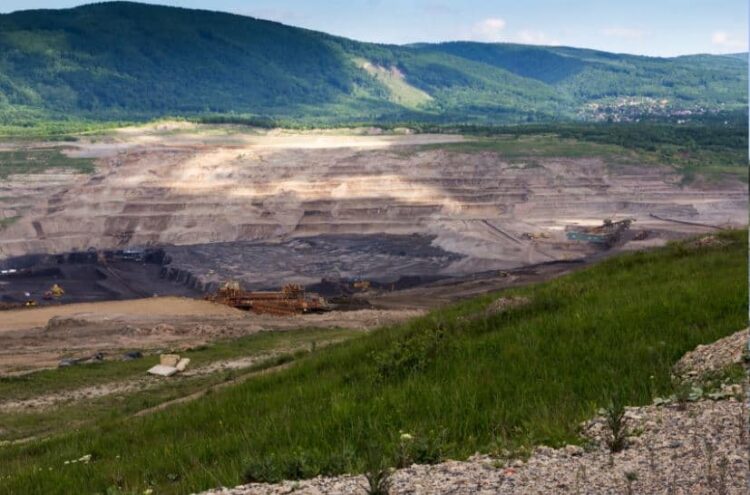Manitoba’s Captured Carbon Storage Act receives royal assent

Authors: Randy Brunet, K.C., Thomas Collopy, Scott Masson, Andrew Konopelny, Nicole Graham
On June 4, 2024, the Captured Carbon Storage Act (the “CCS Act”) received royal assent after its third reading by the Manitoba legislature. The CCS Act will now come into force on proclamation.
Once in force, there will be increased clarity on the regulatory requirements for carbon, capture and storage (CCS) projects in Manitoba. The CCS Act creates a framework for the licensing and operation of CCS facilities.
Manitoba’s CCS potential
Manitoba is located on the eastern edge of the Western Canadian Sedimentary Basin which provides the province with both oil and gas and CCS opportunities. To date, there is one commercial CCS facility in Manitoba – the Cenovus ethanol plant in Minnedosa.
Manitoba’s CCS potential is demonstrated in a December 2017 report entitled The Potential for Carbon Dioxide Equivalent Sequestration in Agro-Manitoba. The report is published by the International Institute for Sustainable Development and concludes there is a concrete opportunity to offset greenhouse gas emissions through CCS in Manitoba.
Changes from existing regulatory framework
The CCS Act represents a significant shift and marked departure from the province’s present regulatory framework. As a result, it should greatly streamline regulatory considerations in assessing CCS projects in Manitoba. Prior to the enactment of the CCS Act, regulation of CCS projects piggybacked off of, and was governed by, oil and gas legislation such as: The Mines and Minerals Act, The Oil and Gas Act, The Gas Pipe Line Act, The Surface Rights Act, The Oil & Gas Production Tax Act, The Environment Act and The Contaminated Siters Remediation Act.
That said, as discussed in MLT Aikins 2023 Energy Playbook, although the existing regulatory framework allowed for CCS projects in Manitoba in the past, such as the noted Minnedosa ethanol plant, the previous approach led to uncertainty regarding regulatory requirements. Existing legislation such as The Contaminated Siters Remediation Act, including its category 1 and 2 framework, will continue to apply to CCS projects.
The updated framework in the CCS Act addresses the shortcomings of Manitoba’s previous CCS framework (as we identified in our 2023 Energy Playbook).
The updated framework
The CCS Act will create greater clarity for developers looking to pursue CCS projects by establishing the following changes to Manitoba’s existing framework:
- Pore space ownership: The CCS Act will firmly establish that pore space is owned by the Government of Manitoba, regardless of land and mineral rights ownership, with the exception of pore space under land within a reserve or that belongs to the Crown in right of Canada. This is consistent with the approach taken by Alberta and removes previous uncertainty in Manitoba on pore space ownership.
- Licensing requirements: The CCS Act establishes the following requirements relating to reservations, licences and permits:
- Exploration reservations: Gives the holder an exclusive right to apply for a geophysical exploration permit for the area and for a test well licence.
- Geophysical exploration permits: Allows for geophysical exploration and for the drilling of a test well to assess whether a site is suited for a CCS project.
- Test well licences: Provides the right to drill a test well. An exploration reservation, necessary surface rights pursuant to The Surface Rights Act and additional consents or rights set out in the regulations must first be obtained before a test well licence can be issued.
- Well licences: Required prior to the drilling of any well. For a test well licence, an exploration reservation is required. In other cases, a carbon storage licence is first required.
- Disposal permits: Needed to dispose of salt water or other fluids produced from a well.
- Carbon storage licences: Provide the exclusive right to store carbon underground in a particular area. A test well must first be drilled or written approval received from the director to be appointed pursuant to The Public Service Act to administer and enforce the CCS Act. An application for a carbon storage licence must be accompanied by documentation including a risk assessment; a storage resource assessment of the proposed carbon repository; a risk management plan; a monitoring, measurement and verification plan; and a plan for the facility’s eventual closure. Revised risk management plans, monitoring, measurement and verification plans or closure plans may be permitted or required by the director. Upon receipt of a carbon storage licence, project proponents can begin injecting carbon at the site.
- Surface and subsurface rights: The Surface Rights Act must still be complied with to receive the right of entry to the surface of any land. That said, the director is empowered to authorize entry along proposed pipeline routes by storage licensees to survey, examine or carry out other activities required for evaluation of the proposed route.
- Reporting requirements: The CCS Act is not completely clear on reporting requirements. Regimes such as in Alberta and Saskatchewan impose a number of reporting obligations which must be met over the life of a CCS project. Although not clearly outlined, the CCS Act does enable the director to require and request reports as well as to inspect CCS projects. As a result, it is likely that such requirements will be more clearly set out via regulation or other guidance from the director.
- Closure: Approval must be received prior to ceasing operations and closing a CCS site. The director may also order closure and impose terms and conditions on the implementation of an approved closure plan. Licensees are required to close the site in accordance with the CCS Act. Once closure is complete, the director will issue a closure certificate.
- Long-term liability: Unlike in Alberta, upon the issuance of a closure certificate, the former licensee remains responsible for actions or repairs to prevent the escape of carbon and relating to the storage of the carbon, impacts on neighbouring land and groundwater caused by carbon capture. The closure must be carried out in accordance with the site’s closure plan.
- Well abandonment: The CCS Act contains comprehensive provisions governing well abandonment and restoration. Approval is required for well abandonment and subject to site restoration requirements. Where a well is abandoned, the last licensee remains liable although the government may step in to ensure that the well is properly closed and the well site restored.
- Abandonment fund: Unlike Alberta, the CCS Act does not establish a separate fund for CCS projects. This is unsurprising given that Manitoba has taken the approach of Saskatchewan wherein licensees remain perpetually liable for any CO2 leakage (even once sequestration is complete). The abandonment fund is not mentioned in the CCS Act, but it is likely that project proponents will pay into the fund in the ordinary course.
- Penalties: Violation of the CCS Act or its regulations and inspections are offences to which: (1) individuals may be liable on conviction to a fine of not more than $50,000, imprisonment for six months or both; and (2) persons other than individuals found liable on conviction are liable for a fine up to $500,000. The director is also empowered with a number of tools it may use to order compliance including taking over wells.
Mineral recovery remains covered by existing oil and gas legislation, with the CCS Act expressly stating that none of the reservations, licenses or permits issued pursuant to the CCS Act provide any rights to explore, develop or recover minerals. On this note, the CCS Act does not apply to enhanced oil recovery or the storage of CO2 in an underground tank.
Takeaways
The CCS Act will add greater clarity and certainty for investors looking to develop projects in Manitoba, including potentially increased access to federal CCS incentives.
MLT Aikins has extensive experience advising on CCS projects across Western Canada. Contact one of our energy lawyers to learn more.
Note: This article is of a general nature only and is not exhaustive of all possible legal rights or remedies. In addition, laws may change over time and should be interpreted only in the context of particular circumstances such that these materials are not intended to be relied upon or taken as legal advice or opinion. Readers should consult a legal professional for specific advice in any particular situation.






